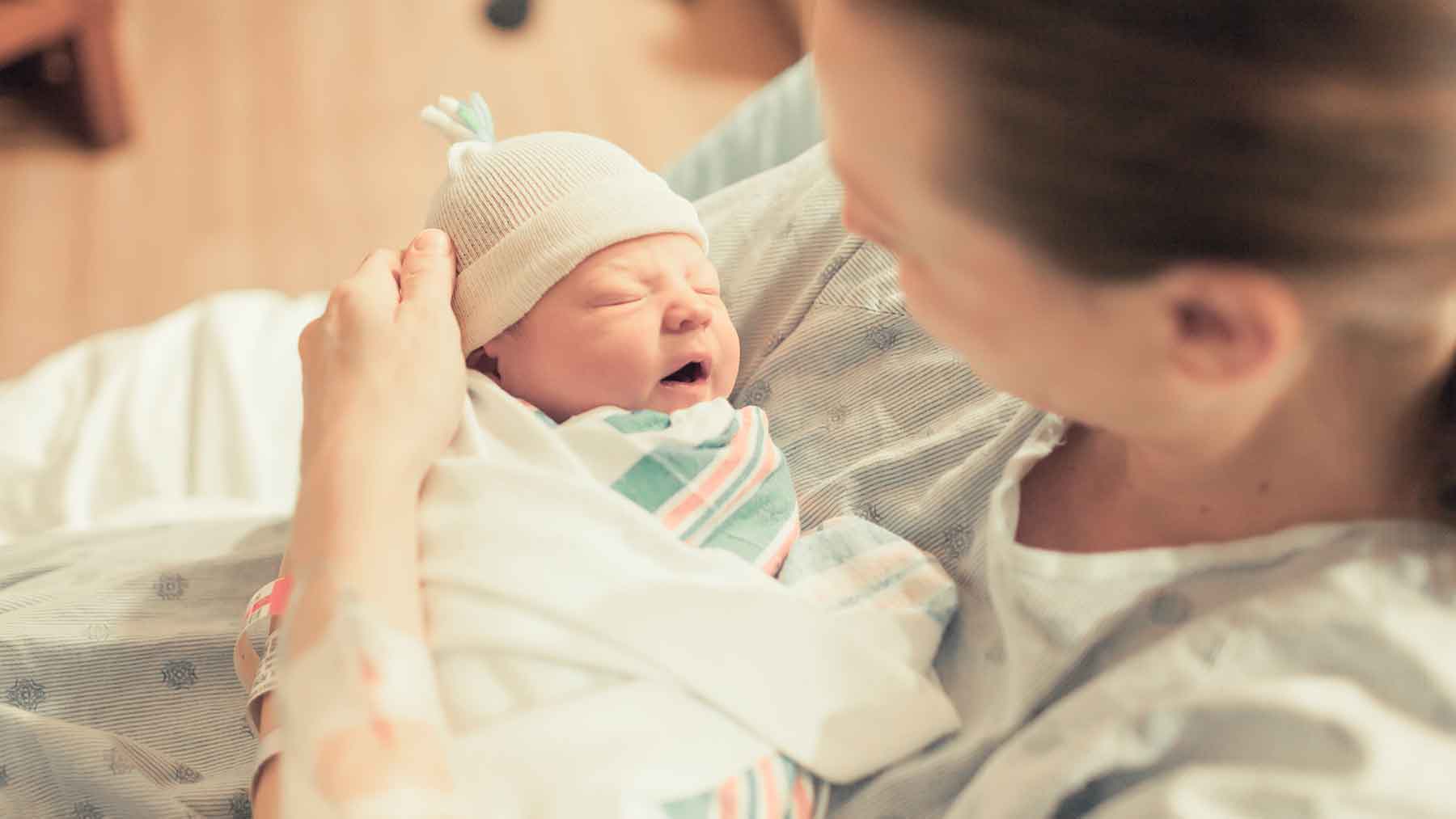Should you give birth at home during COVID-19?

Editor’s note: As what we know about COVID-19 evolves, so could the information contained in this story. Find our most recent COVID-19 blog posts here, and learn the latest in COVID-19 prevention at the Centers for Disease Control and Prevention.
Expecting moms today are facing a question they likely never anticipated having to ask during their pregnancy—how to give birth during a disease outbreak. A fear of contamination, hospital overcrowding, supply shortages and visitor restrictions is leading more and more women to consider having their birth at home.
According to the American College of Obstetricians and Gynecologists (ACOG), less than 1% of births per year occur at home in the United States. Birth is a personal experience and patients have the right to choose home birth if that’s what they’re comfortable with. However, there are some things to keep in mind when making this decision.
Are hospitals safe for pregnant women right now?
Despite COVID-19, the safest place to give birth is still a “hospital, hospital-based birth center, or accredited freestanding birth center,” according to coronavirus guidelines issued by ACOG. Hospitals are doing a great job to make sure things are clean and they’re keeping patients, visitors and health care providers safe.
It’s important to remember that it’s OK to labor at home for as long as you feel comfortable doing so before coming in for a hospital delivery. If you choose to contract at home, these three things need to be true:
- The baby is moving OK
- There’s no bleeding
- Your water isn’t broken
As long as these three things remain true, you can stay at home to labor.
What steps are labor and delivery units taking to ensure mothers are safe and comfortable in the hospital while delivering during COVID-19?
We’re all taking precautions to limit exposures. We have protocols in place for labor patients and patients undergoing cesarean sections if infected. Ohio State’s labor and delivery staff have worked very hard in planning for any situation regarding active infection. And, as in all times, if you don’t need to be in the hospital, don’t be in the hospital.
Is it safe to give birth at home?
Even the healthiest pregnancies can have problems arise with little to no warning during labor and delivery. If problems occur and you’re birthing at home, transport to a hospital will likely be required, which could actually increase your exposure risk versus just coming to the hospital on your own. Also, a hospital setting can give you and your baby the best care quickly if issues arise.
Home births are associated with a twofold increase in perinatal death. Home births are also associated with a triple risk of incidents of seizures and serious neurological dysfunction of the baby.
For pregnant women, the main risk factor in a home birth is related to hemorrhaging.
Women who meet any of these criteria shouldn’t consider giving birth at home:
- Considered a high-risk pregnancy
- Pregnant with multiples
- Have had a previous C-section birth
- Baby is breech
- Have maternal medical conditions like high blood pressure and gestational diabetes
- High-risk fetal issues
If you choose to give birth at home, be prepared to have a certified midwife oversee your birth.
What precautions should I take with my newborn after birth?
I certainly would resist the urge to show the baby off to family and friends until the “all clear” is given by public health agencies.
One thing that’s really important is keeping up with your newborn and prenatal care after giving birth. While it might seem like a quick physical exam and a few shots is something that can be skipped, it’s extremely important for a health care provider to see both you and baby after giving birth. These appointments are crucial for preventing future illnesses and building a foundation for parents to know what to look for in their baby.
Every woman has the right to choose where she’ll give birth, but it’s important not to take any risks that might put you or your newborn’s health in danger, especially as there’s a high risk for getting COVID-19. Talk with your OB-GYN or other health care provider about your birth plan and any concerns you may have.
Michael Cackovic is a maternal fetal medicine physician at The Ohio State University Wexner Medical Center and director of the Heart Disease in Pregnancy Program. He's also an associate professor of obstetrics and gynecology at the Ohio State College of Medicine.




